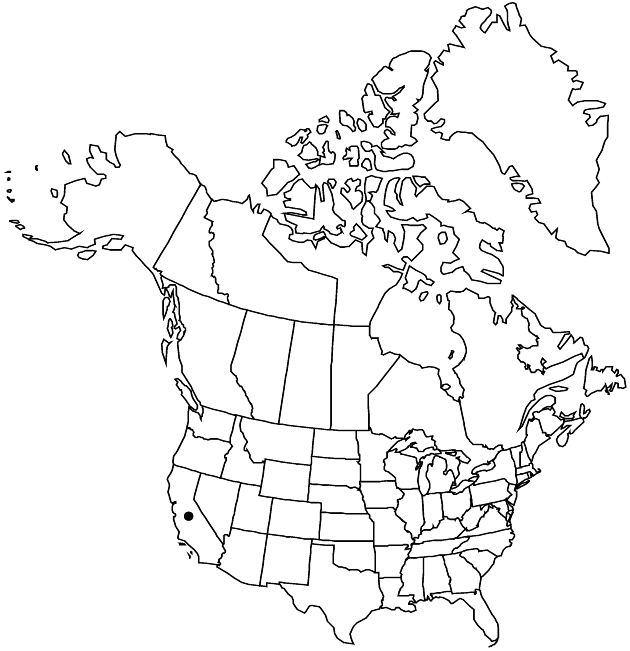Layia heterotricha
Bot. Beechey Voy., 358. 1839.
Plants 13–90 cm (self-incompat-ible); glandular, strongly apple or banana-scented. Stems not purple-streaked. Leaf-blades elliptic to ovate, 10–120 mm, margins (basal leaves) entire or shallowly toothed. Involucres hemispheric, 7–12 × 6–13+ mm. Phyllaries 7–13, apices usually shorter than folded bases. Paleae in 1 series between ray and disc-florets. Ray-florets 7–13; laminae white to cream, 5–24 mm. Disc-florets 40–90+; corollas 4–7 mm; anthers yellow to brownish. Ray cypselae usually glabrous, sometimes sparsely hairy. Disc pappi 0, or (readily falling as units) of 14–20 white, ± equal bristles or setiform scales 3–6 mm, each proximally plumose, not adaxially woolly. 2n = 16.
Phenology: Flowering Apr–Jun.
Habitat: Grasslands, meadows, openings in woodlands, on clayey or sandy, sometimes ± alkaline soils
Elevation: 200–1800 m
Discussion
Of conservation concern.
Layia heterotricha occurs in the South Coast Ranges, western Transverse Ranges, and Tehachapi Range. Molecular phylogenetic data have indicated that L. heterotricha is sister to all other members of Layia (B. G. Baldwin 1996). Weak, ± sterile artificial hybrids have been produced with other species of Layia (no natural hybrids have been reported; J. Clausen 1951).
Selected References
None.
